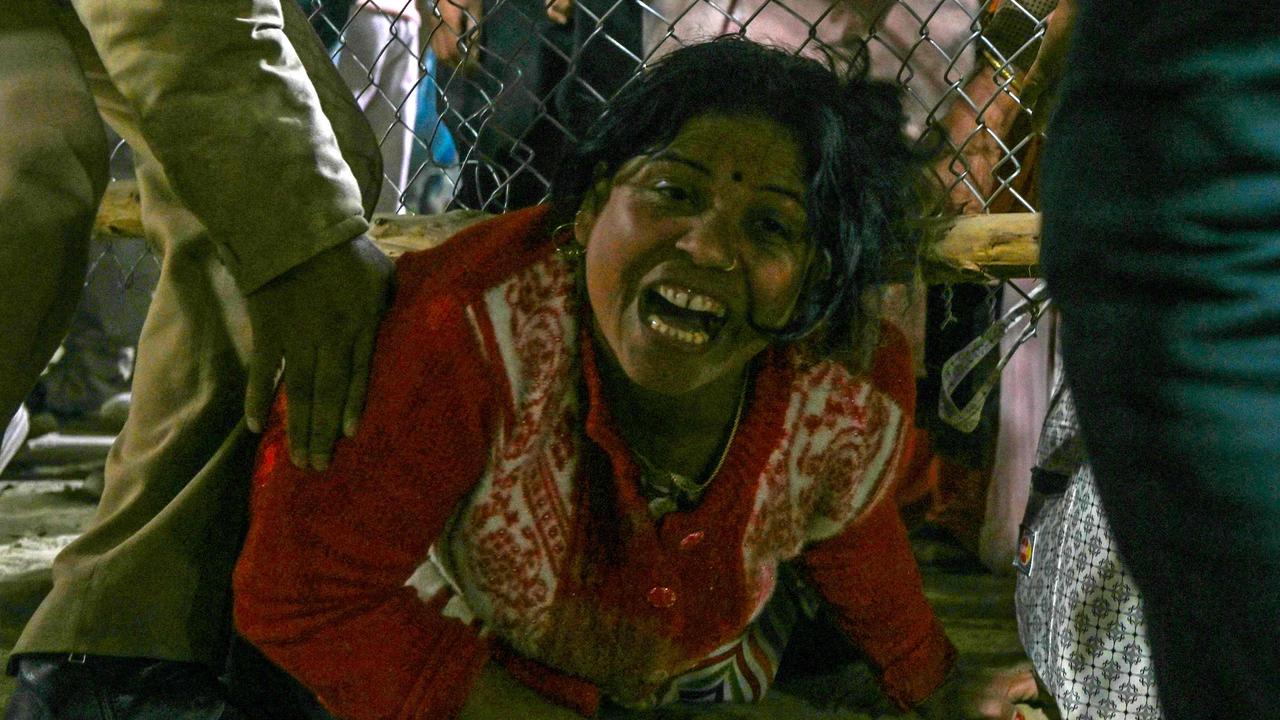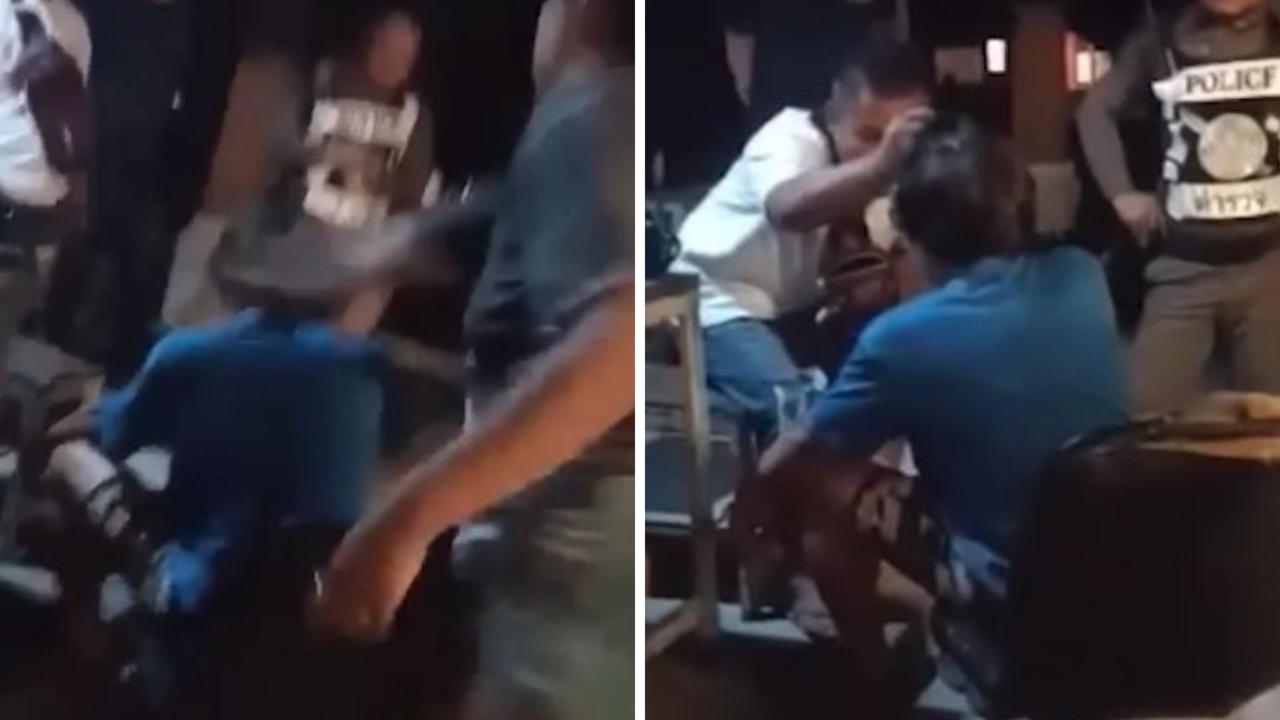Hong Kong mums march in support of students protesting Chinese extradition bill
An image of an Asian city being “torn apart” shows the devastating effect a controversial bill has on thousands of residents.
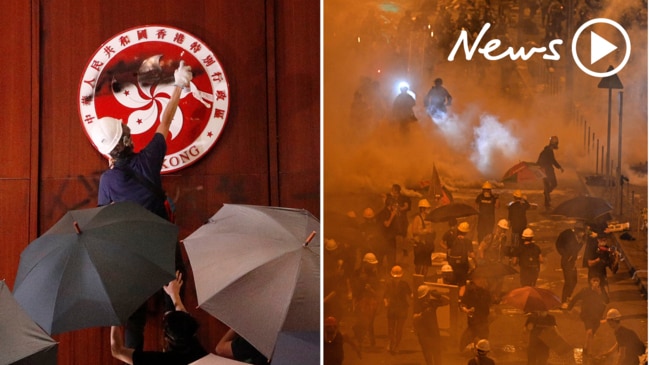
Thousands of angry mums stormed the streets of Hong Kong on Friday to support the “death fighters” opposing an extradition bill that allows people to be sent to China for trial.
Young protesters had earlier declined an offer from the city’s leader Carrie Lam to meet as she desperately tries to calm the month-long protests over the proposed law that has seen many risk their lives making emotional stands.
On Monday the situation peaked, with demonstrators swamping Hong Kong’s legislature in a mass stand against the extradition bill.
But it’s not just the younger generation of Hong Kong’s citizens who are up in arms over the controversial proposition, with thousands of mothers rallying to support them in a huge protest yesterday.
RELATED: Protesters storm Hong Kong parliament, plant powerful symbol
RELATED: Thousands egg Hong Kong police HQ, barricading officers inside
RELATED: Viral HK protest photo causes stir
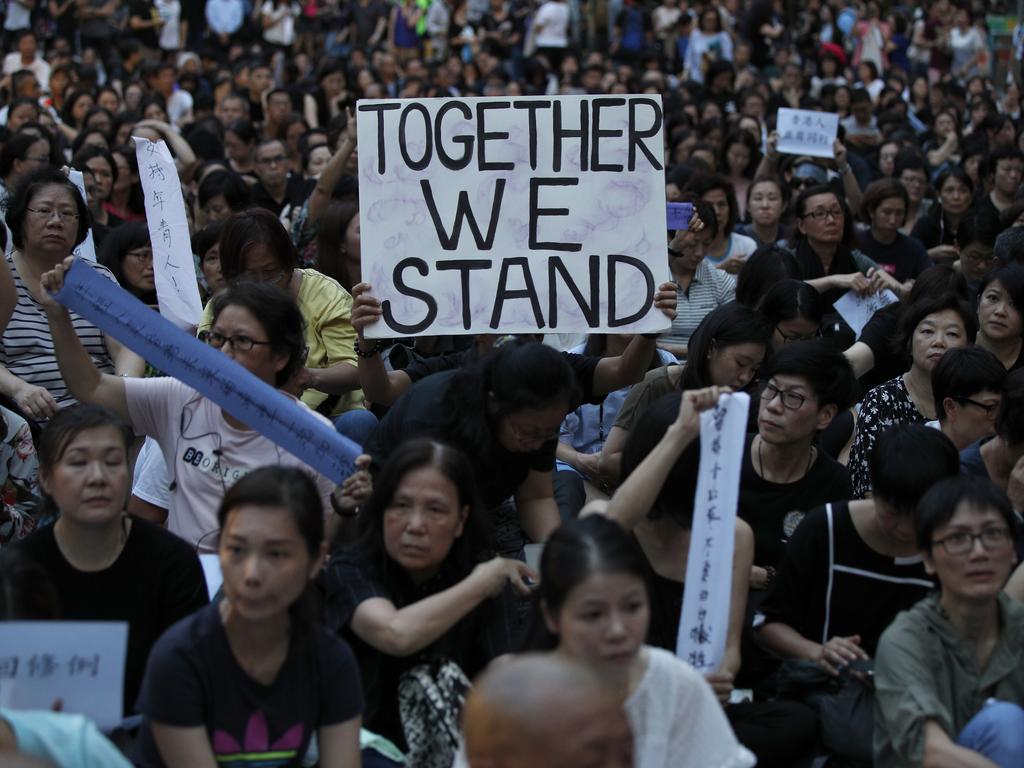
“Don’t feel lonely, dad and mum will support you” one of many handwritten messages held aloft at a “Hong Kong Mothers” rally read.
One speaker, university professor Sealing Cheng, asked who was responsible for the destruction of the legislature, implying that an arrogant government had driven the protesters to break into the building and rampage through it.
“Our hearts ache for the young protesters and our society torn apart,” she said in a speech to the crowd of mostly women.
Hong Kong mums and dads last night in Central. pic.twitter.com/zC71zCm2k1
— Xyza Cruz Bacani (@XyzaCruzBacani) July 6, 2019
The mainland’s economic influence loomed large at the rally, held in a square under the towering offices of the Bank of China and other Chinese banks. Many young people feel left out of the China-driven economy, struggling to make ends meet and stuck in tiny apartments because of soaring real estate prices. They think a democratically elected government would be more responsive to their needs than one chosen by pro-Beijing elites who benefit from the economic ties to the mainland.
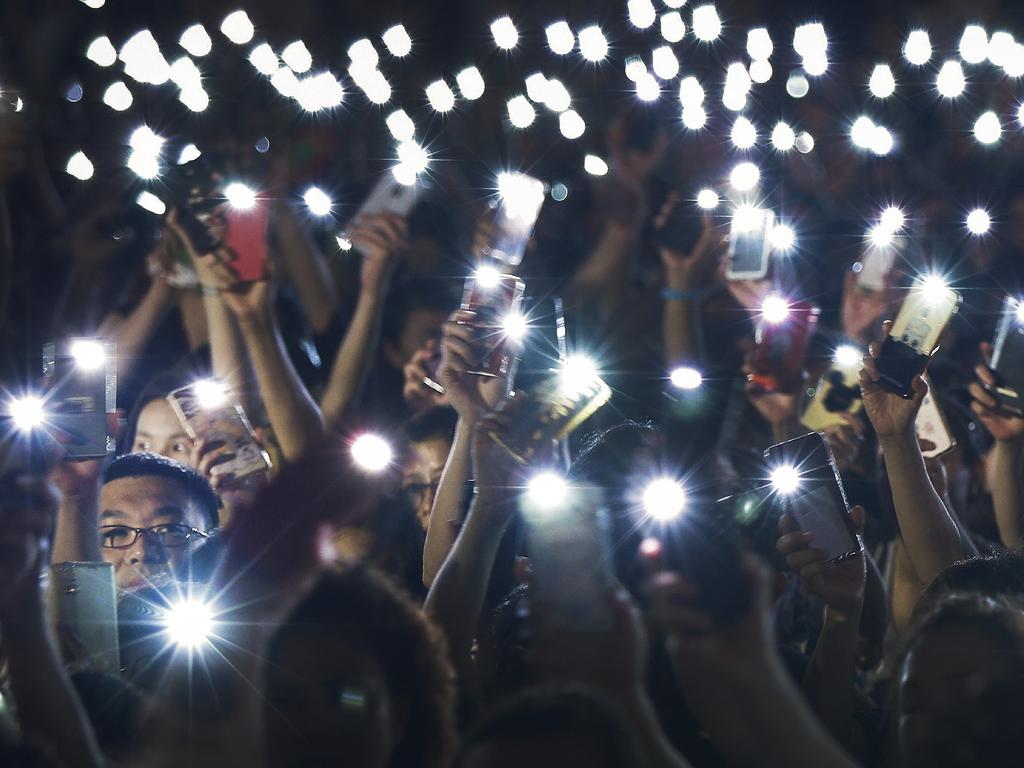
The Monday night assault on the legislature — in which glass walls were shattered, slogans spray-painted over the walls and the electronic voting system destroyed — seems to have hardened positions on both sides.
The pro-Beijing establishment condemned the violence, as did the Chinese government. On the other side, a large swath of Hong Kong’s population expressed sympathy for the young protesters — many of them students — seeing them as having sacrificed for a shared cause.
Lam, who disappeared from public view for two weeks as protests mounted, pledged to do a better job of listening to the voices of young people in a morning speech on Monday, a holiday that marked the 22nd anniversary of the return of Hong Kong from British rule to China.
But her invitation later in the week to meet behind closed doors was rebuffed by student unions at two Hong Kong universities as insincere and a publicity gimmick.
Student leaders said at a news conference Friday that any meeting should be public and include a wider representation than just them. They also demanded that protesters, dozens of whom have been arrested, would not be prosecuted.
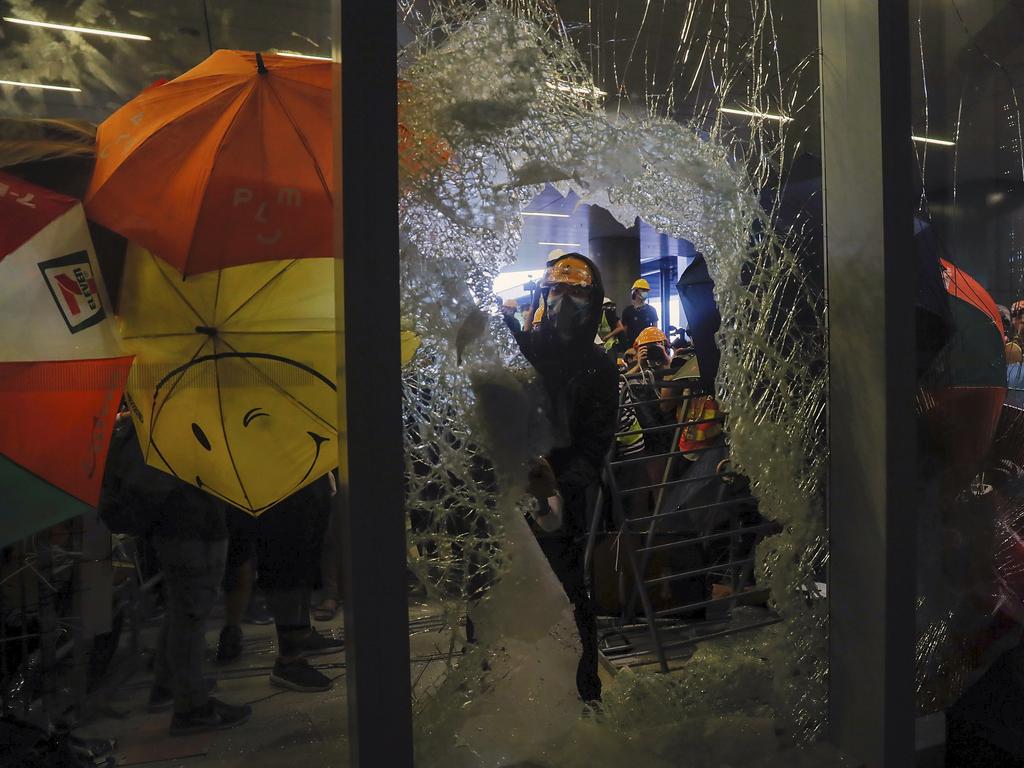
“A closed-door meeting does not have any witnesses to prove what was discussed, the public does not know what the dialogue was about,” said Jordan Pang from the University of Hong Kong Students’ Union. “The public has the right to know.”
Ng Yat Ming, vice president of the Hong Kong University of Science and Technology Students’ Union, said they would be condemned as traitors if they negotiated with Lam on behalf of the public.
“We believe it is a PR stunt,” he said.
Young people have taken the lead in protesting against Lam’s now-suspended proposal to allow the extradition of suspects to mainland China. Many saw the proposed legislation as a threat to the rights guaranteed to Hong Kong under the “one country, two systems” framework that governs it.
Lam, who was appointed as Hong Kong’s leader by a committee dominated by pro-Beijing elites, suspended the legislation indefinitely after a huge protest march on June 9 and then a June 12 demonstration that blocked access to the legislature and nearby streets.
The protesters remain unsatisfied. Their demands include the formal withdrawal of the extradition bills, Lam’s resignation, the release of dozens of arrested protesters and an independent investigation into a police crackdown on the June 12 protest that included tear gas and rubber bullets.
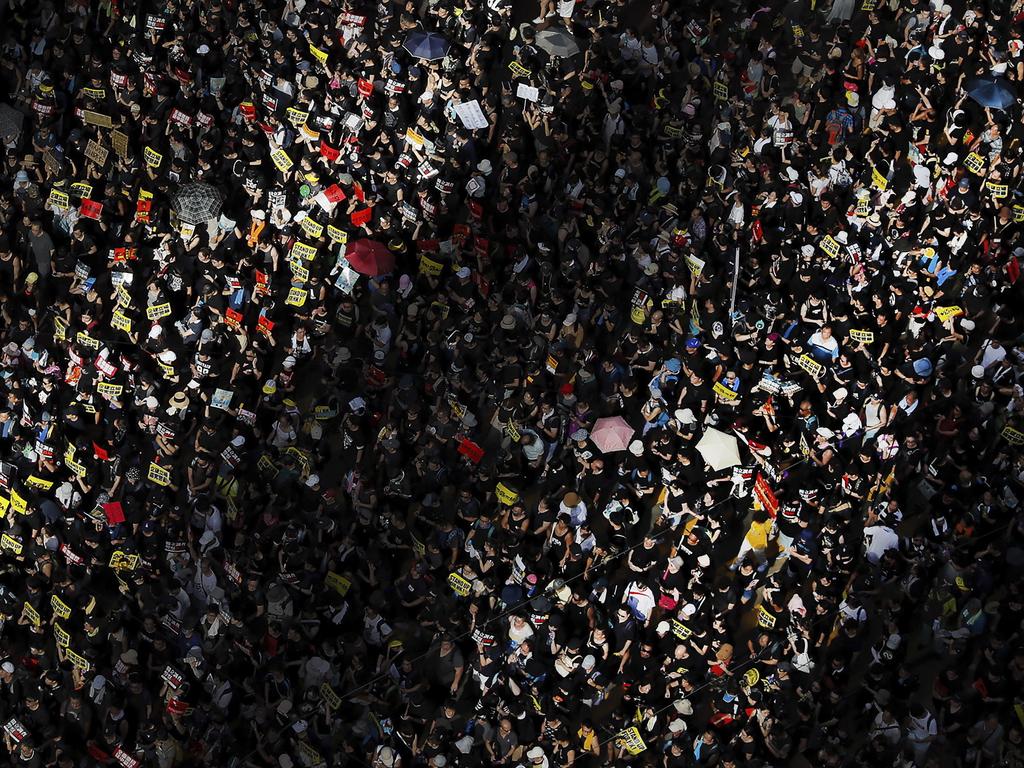
They blocked streets and government buildings and besieged the police headquarters twice before storming the legislature on Monday. During the rampage on the official building four protesters had stood their ground among the chaos, waiting at the doors to be arrested by police.
Camera crews captured the moment the rest of the group grabbed the hands of the stubborn foursome, calling them the “death fighters” and led them to safety before police got to them, earning the passionate protesters a new moniker.
The Legislative Council has suspended meetings until October for repairs to the heavily damaged complex.
One protester charged in a siege of police headquarters on June 21 appeared in court Friday, Hong Kong media reported. He was the first of those arrested to do so.
Pun Ho-chiu has been charged with assaulting eight police officers, damaging walls and escalators at police headquarters and behaving in a disorderly manner, public broadcaster RTHK said on its website. He was denied bail. Pun accused police of mistreating him while in custody, according to the media reports. The judge said the complaints are outside the court’s mandate.
Additional reporting by AAP



